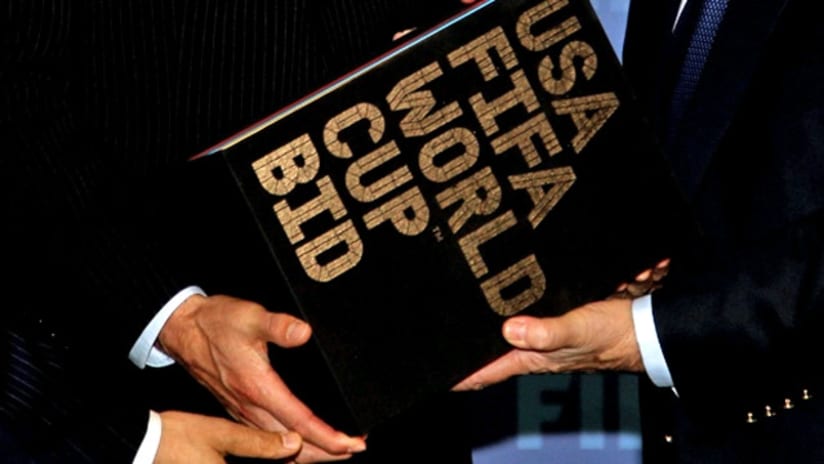Twenty-two years ago, when FIFA awarded the favored United States the 1994 World Cup, the decision seemed like a slam dunk even weeks prior the announcement.
As to which countries will wind up hosting the 2018 and 2022 World Cups, well, your guess is as good as ours. There are many indications that the US is in a very good spot, but the process is much more complex than it was in 1988.
It was a much simpler and different world back then. For instance, high-ranking FIFA officials actually spoke about the bids. Today, mum's the word, at least until the announcement is made in Zürich, Switzerland, on Thursday.
For the 1994 World Cup, a simple plurality – the most votes, not necessarily a majority – was needed to win. The US received 10 votes, Brazil seven and Morocco two. Now, a majority is needed.
But that's only one of the complications.
Instead of having one World Cup host selected six years in advance, two World Cups hosts will be named eight and 12 years prior. Instead of the three candidates (Brazil, Morocco and the US) there were in '94, there are five countries vying to host the 2022 competition – Australia, Japan, Korea, Qatar and the US – while Belgium/Netherlands, England, Russia and Spain/Portugal are the 2018 candidates.
Before the 2022 vote is taken, the FIFA executive committee will pick the 2018 host. That could have an effect on 2022, depending on who votes for whom and which candidates and voting blocks are backing other finalists.
If a majority – 12 out of 22 votes – isn't reached on the first ballot, the candidate with the lowest amount of votes will be eliminated, similar to the Olympic process, until a winner is determined. In case of a tie, FIFA president Sepp Blatter will cast the deciding vote.
So, it isn't necessarily about finishing atop the first ballot, but surviving into the second round and accruing votes in subsequent rounds. Depending on politics, the likes and dislikes of the FIFA executive committee, the leader could change from round to round and the outcome could be a surprise.
Working in the US' favor is this: The US bid committee knows how to present like top-notch professionals. The superb '94 bid set the standard, making sure it dotted all the I's and crossed all the T's in two comprehensive bid books. In 1988, Brazil's bid book was criticized by FIFA as being flimsy. Learning from the US' '94 effort, every candidate's bid is much more comprehensive.
For 2022, the US went several steps further, with an impressive, five-volume, 1,250-page, 16-pound package that had substance and style. That's no clincher, of course. There's still a vote to be taken, and the recent corruption scandal implicated the US bid, though only by suggestion. (Reporters from The Times of London, posing as lobbyists for a US business group, said FIFA executive committee members Amos Adamu (Nigeria) and Reyard Temarli (Tahiti) offered to sell their votes. Both men were banned from the sport.)
Compare that to the '94 vote, in which two Brazilians on the executive committee – FIFA president Dr. João Havelange and Abílio d'Almeida – declined to vote so there would be no conflict of interest.
It is not known exactly how the recent scandal's fallout will affect the vote, and that's a gray area that looms like a storm cloud.
There is one change, however, that may be for the better. When the late FIFA executive vice president Harry Cavan announced the '94 winner, it took hours before American soccer public knew the result because the best ways to communicate back then were by telephone or wire service reports.
On Thursday, within minutes, if not seconds, the entire world will know whether the US tastes success, thanks to the announcement being streamed live on FIFA.com, Twitter, websites and blogs.
Regardless of glory or failure, the suspense will be brief.
USA Bid A World Away From 1994

